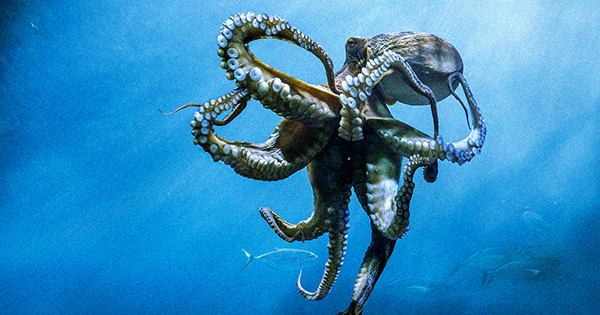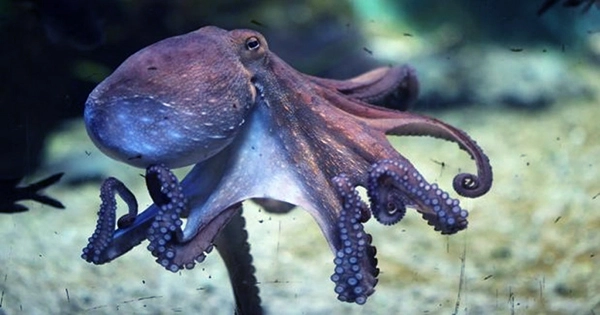According to a recent research, octopuses’ brains evolved in a similar fashion to ours, making them extremely clever. The work, which is published as a preprint at bioRxiv and has yet to be peer-reviewed, indicates that octopus brains contain significant numbers of regulatory RNA molecules, just like vertebrates. This might aid in the development of a diverse range of neurons and a higher level of neural complexity.
“We show that a large expansion of the microRNA gene repertoire is the primary RNA novelty of soft-bodied cephalopods,” the scientists write. “Strikingly, the only similar [microRNA] increases occurred in vertebrates.” As a result, we believe [microRNAs] are connected to the emergence of sophisticated animal brains.”

Because microRNA (miRNA), unlike the similarly called mRNA, does not code for proteins, it has earned the derogatory moniker “junk DNA.” They control gene expression by binding to mRNA and preventing it from being translated into protein. Organisms with a large number of miRNA have more control over gene expression. A mollusk with a large number of miRNAs – 51 have been shown to be preserved in octopus and squid since their lineages separated 300 million years ago – may be able to manufacture more kinds of neuron, which might explain their brain’s complexity.
The researchers looked at 18 tissues from common octopuses, first theorizing that RNA editing may be at the root of their extraordinary cognitive skills. They identified no substantial differences between octopus and other invertebrates, while they admit that some editing could be relevant in some circumstances. Instead, the teeny-tiny miRNA was discovered to be a component in octopus brain complexity. MiRNA expression patterns were also investigated, with the scientists discovering that they are most highly expressed in neurological tissues and are present in the brains of developing octopus hatchlings.
“Our findings together show that new [soft-bodied cephalopod] miRNAs do play a role in the development of the octopus brain.” Octopuses are known for their intelligence, yet not all of them are equal. Their brains can differ in size and texture, implying that they don’t all have the same level of cunning.
Those that do, on the other hand, can be observed hitting fish, hurling garbage, and demonstrating some excellent escape artistry, putting their brains to good (read: antisocial) use. They are capable of a wide range of sophisticated activities, including the ability to feel physical and emotional pain, as well as maybe dreaming. As a result, they, like squid and lobsters, are now considered sentient entities in the United Kingdom. This level of intellect is exceptional among invertebrates, and we may now have a clearer grasp of why.















